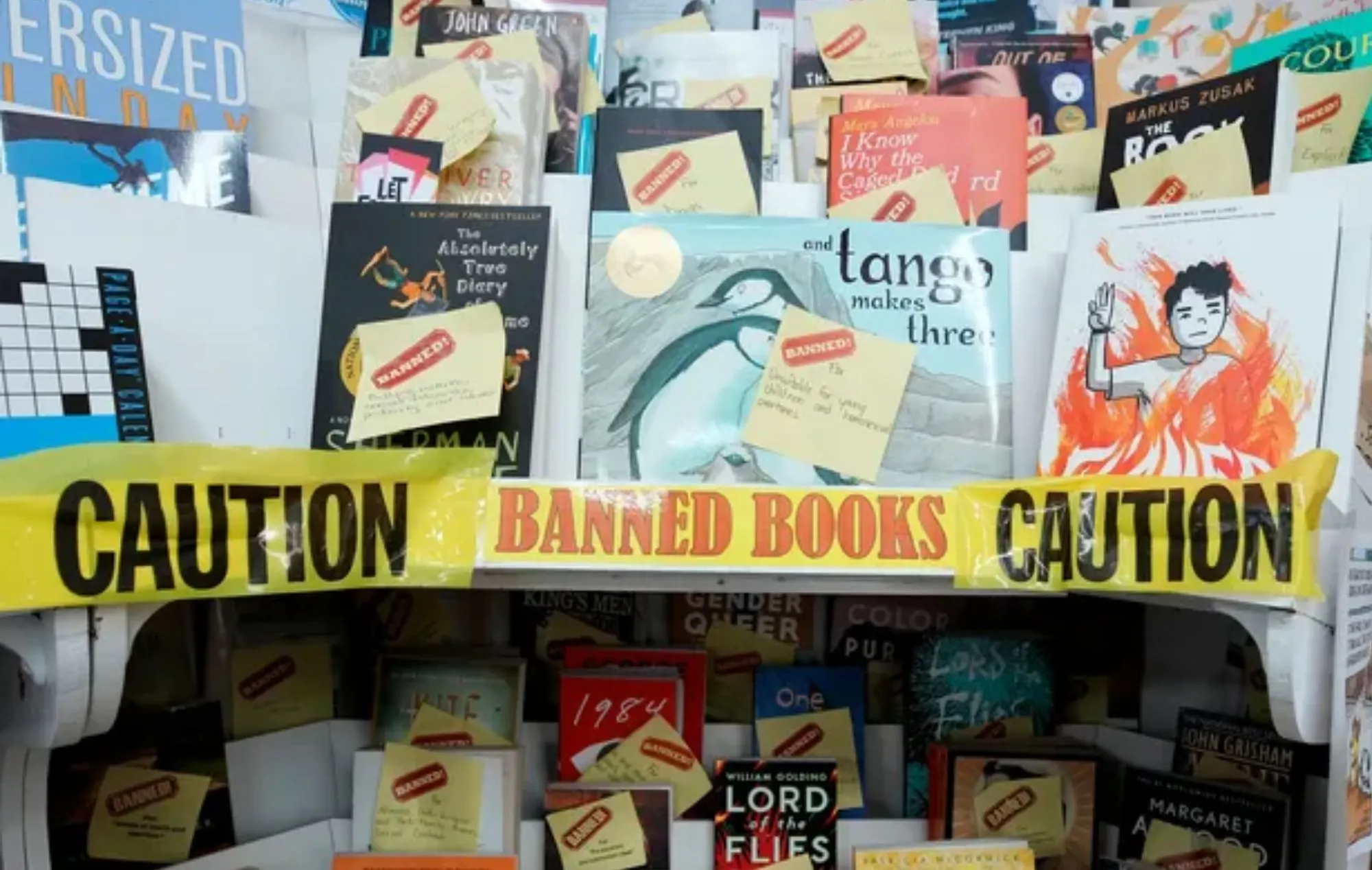A lawsuit filed by Penguin Random House, Simon & Schuster, Harper Collins, and other major publishing houses alleges that a Florida state law enacted last year has caused hundreds of book removals and is violates First Amendment rights to free speech.
Authors John Green, Jodi Picoult, Julia Alvarez, and Angie Thomas also made this complaint, targeting the chair and vice president of the Florida State Board of Education and many other Florida county school board members. The complaint begins by listing “timeless classics, renowned for their literary value such as Maya Angelou’s I Know Why the Caged Bird Sings, Ralph Ellison’s Invisible Man, Ernest Hemingway’s For Whom the Bell Tolls, Zora Neale Hurston’s Their Eyes Were Watching God, Aldous Huxley’s Brave New World, Toni Morrison’s The Bluest Eye, Leo Tolstoy’s Anna Karenina, Richard Wright’s Native Son, Kurt Vonnegut’s Slaughter-House Five, and Alice Walker’s The Color Purple. These are all books that have been removed from Florida schools.
The complaint then discusses the First Amendment, which “prohibits the suppression of [s]peech that is neither obscene as to youths nor subject to some other legitimate proscription solely to protect the young from ideas or images that a legislative body thinks unsuitable for them. In most circumstances, the values protected by the First Amendment are no less applicable when the government seeks to control the flow of information to minors.” Erznoznik v. City of Jacksonville, 422 U.S. 205, 213-14 (1975).
The right to speak and the right to read are discussed at length. “Authors have the right to communicate their ideas to students without undue interference from the government. Students have a corresponding right to receive those ideas. Publishers and educators connect authors to students.” The lawsuit even suggests, “If the State of Florida dislikes an author’s idea, it can offer a competing message. It cannot suppress the disfavored message.
They go on to say that Section 1006.28 of the Florida Statutes, as amended by House Bill 1069, violates the First Amendment rights of publishers, authors, and students by forcing teachers, media specialists, and their school districts to remove books or risk penalties, including loss of licensure.
The lawsuit points to a section of the bill that requires school districts to remove a book that “depicts or describes sexual content” or is “pornographic.” One process to remove books from school libraries under the law allows parents to read out loud, controversial passages during a school board meeting. If the board stops the reading due to explicit content, the school must “discontinue use of the material.” None of the people may have read the book in its entirety; to get much needed context, they merely point out a short passage and use that to remove the book from schools.
Florida officials have described the lawsuit as a “stunt.” Nathalia Medina, a spokeswoman for the state’s Board of Education, said, “There are no books banned in Florida. Sexually explicit material and instruction are not suitable for schools.” So, what happens with those books? Are they removed from schools or, in other words, banned?
Book bans have been a huge issue over the last few years as parents, educators, and lawmakers argue over how race, history, and sexuality should be taught in school, if at all. According to a report released in April by Pen America, a nonprofit advocating free speech, Florida is at the forefront of the battle, leading the national surge in school book challenges.
The lawsuit, filed in federal court in Orlando, says that authors have the right to have their books read by anyone, including students, under the First Amendment. Florida school districts have basically made it too easy for one person to remove a book from schools. This complaint suggests that no book be removed before consulting “trained professionals, such as teachers or media specialists.” It adds that some teachers have shut down their libraries for fear of objections, controversies, or the risk of losing their teaching licenses.

